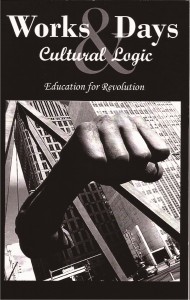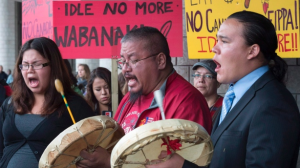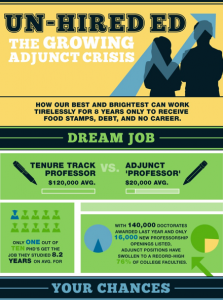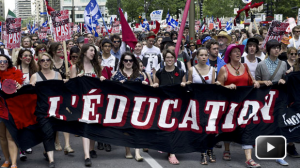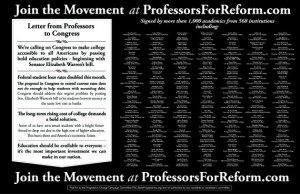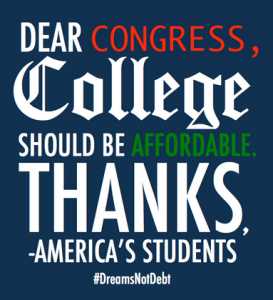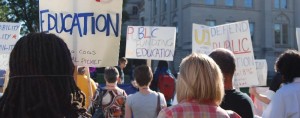Henry A. Giroux, Truthout, September 10, 2013– Edward Snowden, Russ Tice, Thomas Drake, Jeremy Scahill, and Julian Assange, among others, have recently made clear what it means to embody respect for a public intellectual debate, moral witnessing and intellectual culture. They are not just whistle-blowers or disgruntled ex-employers but individuals who value ideas, think otherwise in order to act otherwise, and use the resources available to them to address important social issues with what might be called a fearsome sense of social responsibility and civic courage. Their anger is not treasonous or self-serving as some critics argue, it is the indispensable sensibility and righteous fury that fuels the meaning over what it means to take a moral and political stand and to continue the struggle to live in a substantive rather than fake democracy.
These are people who work with ideas, but are out of place in a society that only values ideas that serve the interests of the market and the powerful and rich. Their alleged wrongdoings as intellectuals and truth tellers is that they have revealed the illegalities, military abuses, sordid diplomacy and crimes committed by the United States government in the name of security. Moreover, as scholars, scientists, educators, artists and journalists, they represent what C. Wright Mills once called the “organized memory of society” and refuse “to become hired technician[s] of the military machine.”[1]
There is a long tradition of such intellectuals, especially from academia and the world of the arts, but they are members of a dying breed and their legacy is no longer celebrated as a crucial element of public memory. Whether we are talking about W. E. B. Dubois, Jane Jacobs, Edward Said, James Baldwin, Murray Bookchin, Martin Luther King, Jr., Michael Harrington, C. Wright Mills, Paul Sweezy or Ellen Willis, these were bold intellectuals who wrote with vigor, passion and clarity and refused the role of mere technicians or lapdogs for established power. They embraced ideas critically and engaged them as a fundamental element of individual agency and social action. Such intellectuals addressed the totality of problems faced in the periods in which they lived, made their publications accessible, and spoke to multiple publics while never compromising the rigorous nature of their work. They worked hard to make knowledge, and what Foucault called, dangerous memories available to the public because they believed that the moral and cultural sensibilities that shaped society should be open to interrogation. They paved the way for the so-called whistle-blowers of today along with many current public intellectuals who refuse the seductions of power. Intellectuals of that generation who are still alive are now largely ignored and erased from the public discourse.
Intellectuals of that older generation have become a rare breed who enriched public life. Unfortunately, they are a dying generation, and there are not too many intellectuals left who have followed in their footsteps. The role of such intellectuals has been chronicled brilliantly by both Russell Jacoby and Irving Howe, among others.[2] What has not been commented on with the same detail, theoretical rigor and political precision is the emergence of the new anti-public intellectuals. Intellectuals who act in the service of power are not new, but with the rise of neoliberalism and the huge concentrations of wealth and power that have accompanied it, a new class of intellectuals in the service of casino capitalism has been created. These intellectuals are now housed in various cultural apparatuses constructed by the financial elite and work to engulf the American public in a fog of ignorance and free-market ideology. We can finds hints of this conservative cultural apparatus with its machineries of public pedagogy in the Powell Memo of 1971, with its call for conservatives to create cultural apparatuses that would cancel out dissent, contain the excesses of democracy and undermine the demands of the student free speech, anti-war and civil rights movements of the 1960s. What has emerged since that time is a neoliberal historical conjuncture that has given rise to a new crop of anti-public intellectuals hatched in conservative think tanks and corporate-driven universities who are deeply wedded to a world more fitted to values and social relations of fictional monsters such as John Galt and Patrick Bateman.
Unlike an older generation of conservative intellectuals such as Edward Shils, Gertrude Himmelfarb, Norman Podhoretz, William Buckley and Allen Bloom, who believed in reasoned arguments, drew upon respected intellectual traditions, affirmed the world of ideas, and engaged in serious debates, the new anti-public intellectuals are ideologues who rant, speak in slogans, and wage a war on reason and the most fundamental institutions of democracy extending from public schools and labor unions to the notion of quality health care for all and the principles of the social contract. We hear and see them on Fox News, the Sunday talk shows, and their writings appear in the country’s most respected op-ed pages.
Their legions are growing, and some of the most popular include Peggy Noonan, Thomas Freidman, Tucker Carlson, Juan Williams, S. E. Cupp and Judith Miller. Their more scurrilous hangers-on and lightweights include: Karl Rove, Bill O’Reilly and Rush Limbaugh. The anti-public intellectuals are rarely off-script, producing tirades against, among others: the less fortunate, who are seen as parasites; immigrants who threaten the identity of white Christian extremists; women who dare to argue for controlling their reproductive rights; and people of color, who are not American enough to deserve any voting rights. They deride science and evidence and embrace ideologies that place them squarely in the camp of the first Gilded Age, when corporations ruled the government, Jim Crow was the norm, women knew their place and education was simply another form of propaganda. Much of what these Gilded Age anti-public intellectuals propose and argue for is not new. As Eric William Martin points out, “Many of the proposals themselves are old; not founding-fathers old, but early-20th-century old. They are the harvest of a century of rich people’s movements.”[3]
What the anti-public intellectuals never include in their screeds are any mention of a government corrupted by the titans of finance, banks and the mega rich, or the scope and extent of the military-industrial-academic-surveillance state and its threat to the most basic principles of democracy.[4] What does arouse their anger to fever pitch are those public intellectuals who dare to question authority, expose the crimes of corrupt politicians, and call into question the carcinogenic nature of a corporate state that has hijacked American democracy. This is most evident in the insults and patriotic gore heaped recently on Manning and Snowden, who are the latest in a group of young people whose only “crime” has been to expose the abusive powers of the national security state. Rather than being held up as exemplary public intellectuals and true patriots of democracy, they are disparaged as traitors, un-American or worse.
The role of the anti-public intellectuals in this instance is part of a much larger practice of self-deceit, self-promotion, and the shutting down of those formative cultures that give rise to intellectuals willing to take risks and fight for matters of freedom, justice, transparency and equality. For too many intellectuals, both liberal and conservative, the flight from responsibility turns into a Faustian pact with a corrupt and commodified culture whose only allegiance is to accumulating capital and consolidating control over all aspects of the lives of the American public. Liberal anti-public intellectuals are more nuanced in their support for the status quo. They do not condemn critical intellectuals as un-American, they simply argue that there is no room for politics in the university and that academics, for instance, should save the world on their own time.[5] Such views disconnect pedagogy from any understanding of politics and in doing so make a false distinction between what Gayatri Spivak calls “the possibility of civic engagement and democratic action and teaching in the classroom.”[6] She argues that “this is a useless distinction because I think what you have to realize is that it is with the mind that one takes democratic action. . . . The Freedom to teach, to expand the imagination as an instrument to think “world” is thus deeply political. It operates at the root of where the ethical imagination and the political mingle.”[7] C.W. Mills goes further and dismisses the attempt to take politics out of the classroom as part of the “cynical contempt of specialists.”[8] He then offers a defense for what public intellectuals do by insisting that:
I do not believe that intellectuals will inevitably ‘save the world,’ although I see nothing at all wrong with ‘trying to save the world’- a phrase which I take here to mean the avoidance of war and the rearrangement of human affairs in accordance with the ideals of human freedom and reason. But even if we think the chances dim, still we must ask: If there are any ways out of the crises of our epoch by means of the intellect, is it not up to intellectuals to state them?[9]
Intellectuals should provide a model for connecting scholarship and public life, address important social and political issues, speak to multiple audiences, help citizens come to a more critical and truthful understanding of their own views and their relations to others and the larger society. But they should do more than simply raise important questions, they should also work to create those public spheres and formative cultures in which matters of dialogue, thoughtfulness and critical exchange are both valued and proliferate. Zygmunt Bauman is right in arguing that it is the moral necessity and obligation of the intellectual to take responsibility for their responsibility – for ourselves, others and the larger world. Part of that responsibility entails becoming a moral witness, expanding the political imagination, and working with social movements in their efforts to advance social and economic justice, promote policies that are just, and make meaningful the promises of a radical democracy.
What might it mean for intellectuals to assume such a role, even if in limited spheres such as public and higher education?…
Some have argued, wrongly in my estimation, that such intellectuals, because they address a broader audience and public issues, betray the scholarly tradition by not being rigorous theoretically. I think this is a massive misreading of much of the work published by such intellectuals, as well as a distortion of what is often published in online journals such as Truthout, CounterPunch, and Truthdig. In fact, Truthout often publishes substantive theoretically rigorous articles under its Public Intellectual Project that are accessible, address important social issues, and at the same time, attract large numbers of readers. I am inclined to believe that at the heart of this misinformed critique is an unadulterated nostalgia for those heady days when one could publish unintelligible articles in small journals and make the claim, generally uncontested, that one was an intellectual because one wrote in the idiom of high theory. Those days are gone, if they ever really existed so as to make a difference about anything that might concern addressing significant public issues.
Read More: Truthout

 Follow
Follow